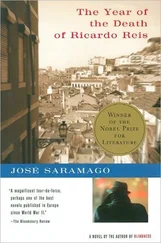Baltasar’s father informed him, I sold the plot we had on the Alto da Vela, I sold it for the reasonable sum of thirty-five hundred réis, but we shall miss that land, Then why did you sell it, Because the King wanted it, my land as well as everybody else’s, And why should the King want to buy those lands. He’s going to build a convent for the Franciscan friars, haven’t you heard it discussed in Lisbon, No, Father, I’ve heard nothing, The local parish priest explained that the convent had been promised to the Franciscans by the King if an heir to the throne should be born, the person who is likely to earn good money now is your brother-in-law, for there will be plenty of work for stone-masons. They had supped on cabbage and beans, the women on their feet and keeping out of the way, and João Francisco Sete-Sóis went to the salting-box and took out a lump of pork, which he cut into four pieces, he then put each piece on a slice of bread and parcelled them out. He watched Blimunda attentively as she took her portion and tranquilly began to eat, She’s no Jewess, her father-in-law thought to himself. Marta Maria had also been watching the girl anxiously, and she gave her husband a severe look, as if to rebuke him for his mistrust. Blimunda finished eating and smiled, and it did not occur to João Francisco that even if she were Jewish she would have eaten the salt pork, for Blimunda has another truth to safeguard.
Baltasar said, I must look for work, and Blimunda, too, must find employment, we must earn a living somehow, For Blimunda there’s no hurry, I want to keep her at home with me for a while, so that I can become better acquainted with my new daughter, That’s fine, Mother, but I must look for a job without delay, With only one hand, what job are you likely to find, I have my hook, Father, which is a great help once you get used to it, That’s all very well, but you cannot dig, you cannot wield a scythe, and you cannot chop firewood, I could look after animals, Yes, I suppose you could, I could also be a drover, the hook is good enough to hold the rope, and my right hand will manage the rest, I’m pleased you’ve come back home, my son, I should have returned sooner, Father.
That night Baltasar dreamt that he went out to plough the entire Alto da Vela with a yoke of oxen, Blimunda walking behind and sticking bird feathers into the ground and these began to flutter as if they were about to become airborne and take the soil with them, then Padre Bartolomeu Lourenço appeared from nowhere, carrying his design and pointing out the mistake they had made, We must start again, he said when suddenly the land waiting to be ploughed reappeared, and Blimunda, who was sitting on the ground, beckoned to Baltasar, Come and lie down beside me, for I have finished eating my bread. It was still the dead of night when he woke up and drew Blimunda’s sleeping body close to him, with its moist, enigmatic warmth, she murmured his name and he whispered hers, as they lay there on the kitchen floor on an improvised bed of folded blankets and, taking great care not to make any noise in case they roused his parents, they made love.
Next day Baltasar’s sister, Inês Antónia, and her husband, Álvaro Diogo, came to welcome Baltasar home and make the acquaintance of their new sister-in-law. They brought their two children, one four years old, the other two, only the older will survive, for the younger child will be stricken by smallpox and die within the next three months. But God, or whoever in heaven determines the span of human lives, is very scrupulous when it comes to maintaining some balance between rich and poor, whenever it proves necessary, He will even cast His eye on those of noble birth to find some counterweight to put on the scales, and to balance the death of the child of Inês Antónia and Álvaro Diogo, the Infante Dom Pedro will die at the same age, for when God so wills, death may be caused by the most unlikely causes, the heir to the Portuguese throne, for example, will die once he is denied his mother’s milk, and only a child as delicate as a royal infante could perish in such circumstances, for Inés Antónia’s child was already eating bread and all the rest when it fell ill and died. Once He has levelled the score, God shows no interest in their funerals, and so, when that little angel was buried in Mafra, as so often happens, the event went unnoticed, but the Infante’s burial in Lisbon was quite another matter, mourning was observed with all due solemnity, the corpse was borne from the royal apartments in a tiny casket by the counsellors of state, who were escorted by all the nobility, the King himself presiding with his brother, and if the King grieved as a father, he grieved most of all at the loss of his first son and natural heir to the throne, and in accordance with court protocol, the funeral cortège went down into the chapel courtyard, all the men wearing their hats, but when the coffin was placed on the bier that was to carry the corpse to its final resting place, the King and father of the dead Infante removed and replaced his hat twice before returning to the Palace, such are the inhumanities of official protocol. The Infante made his lonely journey to São Vicente de Fora, with a magnificent entourage but without father or mother, the Cardinal headed the procession, followed by the mace-bearers on horseback, then the officials and dignitaries of the royal household, behind them came the clergy and altar boys attached to the Royal Chapel, with the exception of the canons who had gone to await the arrival of the corpse at São Vicente, this last contingent carried lighted torches, and behind them came the palace guards, led by lieutenants, in double file, and finally the funeral bier itself, bearing the coffin, which was covered with a magnificent red drape like that which covers the royal coach, and behind the bier came the elderly Duke of Cadaval, in his capacity as the veteran major-domo of the Queen’s household, and the Queen, if she has a mother’s heart, must surely be mourning the death of her child, also present is the Marquis of Minas, the Queen’s chief steward, whose devotion can be judged from his tears rather than from his titles, as is the ancient custom, the aforesaid drapes, along with the harnesses and trappings of the mules, will be given to the friars of São Vicente, and the hostlers of the mules, which also belong to the friars, will receive twelve thousand réis, a form of hiring like any other, and we should not be surprised, for human beings are not mules, yet they, too, are frequently hired, and thus united, they form the solemn procession wending its way through the streets, with soldiers and friars among the crowds lining the pavements, there are friars from all the religious orders as well as the mendicant friars who are the trustees of the sanctuary that will receive the Infante, who died after being deprived of his mother’s milk, a privilege the friars richly deserve, just as they deserve the convent that will soon be built in the town of Mafra, where within the last year a little boy has been buried whose identity has never been established but who also had a funeral cortège, which included his parents, his grandparents, his uncles and aunts, and other relatives, and when the Infante Dom Pedro arrives in heaven and learns of this discrimination, he will be most upset.
Eventually, since the Queen was so well disposed towards maternity, the King gave her another child who would certainly become king and give rise to more celebrations and upheavals, and lest anyone should be curious to know how God will balance this royal birth with that of a commoner, He will balance it, all right, but not by means of anonymous men and women, Inès Antônia will show no desire to see any more of her children die, and as for Blimunda, she suspects that she has mysterious powers at her disposal to avoid giving birth to any children. Let us, therefore, concentrate on the adults, on the endless stories Sete-Sôis will tell of his military exploits, of the modest contribution he made to the nation’s history, of how he came to be wounded and how they amputated his hand, showing them his iron implements as they listen once more to the same old lamentations, These are the misfortunes that befall the poor, he tells them, but not so, for generals and captains also died in the war or have been left crippled for life, and God provides in the same measure as He takes away, but after an hour everyone has got used to this novelty except for the children who sit there staring in utter fascination and tremble with fear when their uncle playfully lifts them off the ground with his hook, he is doing what he can to keep them amused, the younger child shows the greatest interest of all in this singular game, let the poor child enjoy himself, let him enjoy himself while there is still time, for he has only three months left in which to play.
Читать дальше












